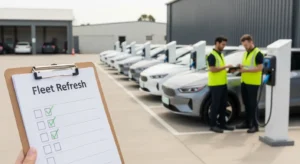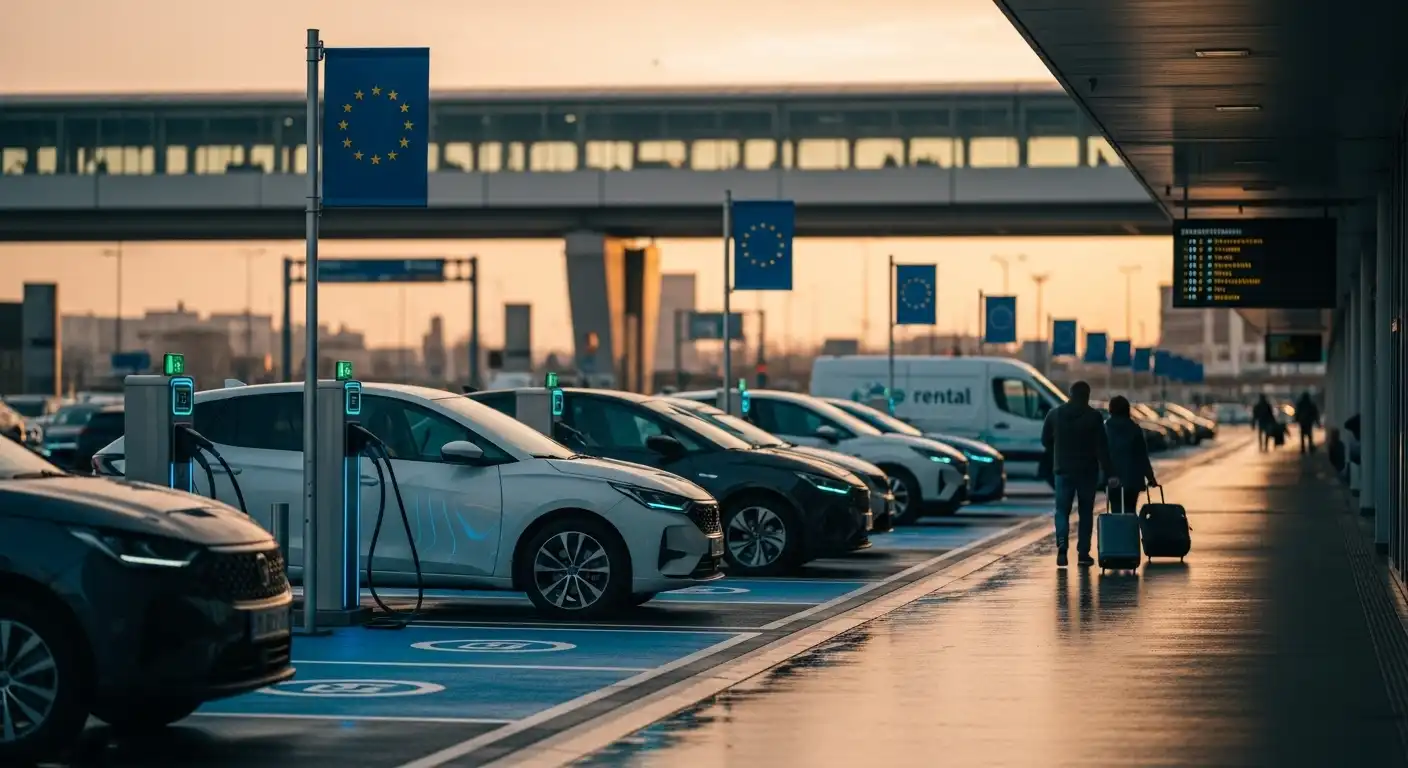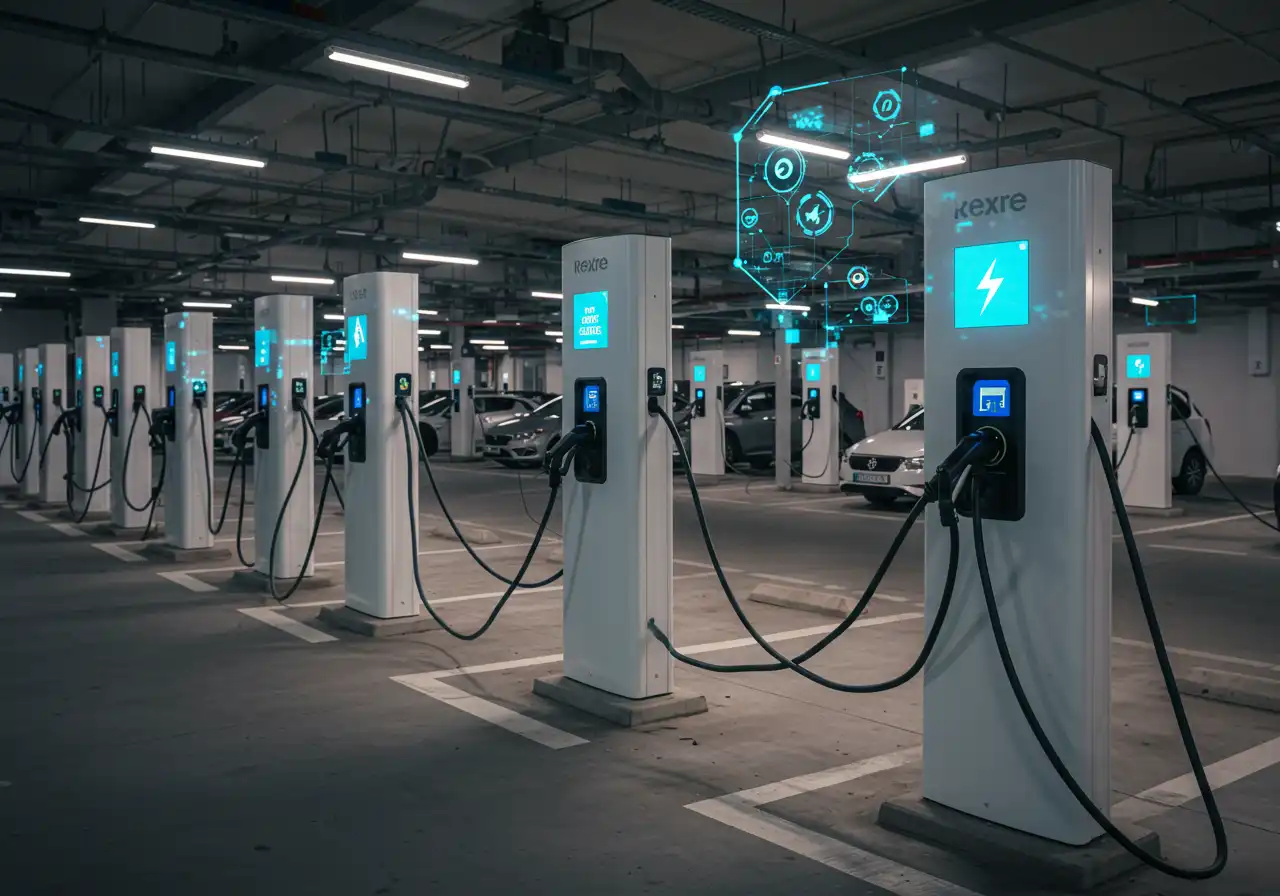What the Proposed Ban Means
Currently, the EU plans to phase out the sale of new ICE vehicles for all sectors by 2035. However, under the new proposal, rental fleets—responsible for approximately 20% of new car registrations in Europe—would face earlier restrictions, beginning in 2030. Rental companies like Hertz, Sixt, and Europcar would no longer be able to purchase new gas or diesel cars for their fleets, relying instead on electric vehicles (EVs) and potentially hydrogen-powered cars.
This policy shift reflects the EU’s broader environmental goals, aiming to reduce emissions more aggressively in high-use sectors. Rental cars tend to accumulate mileage faster than privately owned vehicles, making their transition to cleaner technology an important piece of the climate strategy.
Why the Rental Sector Is Targeted
 Car rental fleets cycle vehicles frequently, often replacing them every 1–3 years. This means rental agencies are ideally positioned to spearhead the transition to EVs. By requiring them to switch earlier than the general market, the EU hopes to create a faster adoption curve, stimulate demand for EVs, and encourage the buildout of charging infrastructure.
Car rental fleets cycle vehicles frequently, often replacing them every 1–3 years. This means rental agencies are ideally positioned to spearhead the transition to EVs. By requiring them to switch earlier than the general market, the EU hopes to create a faster adoption curve, stimulate demand for EVs, and encourage the buildout of charging infrastructure.
Additionally, rental cars have high visibility—millions of tourists and business travelers use them annually. A greener rental fleet could play an important role in normalizing EV use for consumers who may otherwise hesitate to make the switch.
Impact on Renters
For renters, the shift brings both opportunities and challenges:
- More EV Options: Expect to see electric vehicles become the default choice at rental counters by the early 2030s.
- Learning Curve: Renters unfamiliar with EVs will need guidance on charging, range planning, and operation.
- Charging Availability: While infrastructure is improving, renters will need to factor charging stops into their travel plans.
- Potential Costs: Early in the transition, EV rentals may cost more. Over time, however, costs may balance out as EV production scales up.
Tourists, in particular, may need to plan differently. For example, a traveler renting a car for a road trip across multiple EU countries will have to ensure access to compatible charging networks along the route.
Impact on Rental Companies
For rental agencies, the transition is a double-edged sword. On one hand, it creates opportunities to modernize fleets, differentiate through eco-friendly branding, and reduce long-term operating costs. On the other, it presents logistical and financial challenges.
Challenges for Rental Agencies:
- Fleet Investment: Purchasing EVs at scale requires significant upfront capital.
- Charging Infrastructure: Agencies will need to install charging stations at rental hubs, airports, and city centers.
- Maintenance Training: Staff will need new training to service and explain EV technology.
- Customer Education: Agencies must provide clear instructions and support for renters unfamiliar with EVs.
Opportunities for Rental Agencies:
- Sustainability Leadership: Early adopters can market themselves as eco-conscious brands.
- Partnerships: Collaborating with automakers and charging providers may reduce costs and enhance services.
- Fleet Efficiency: EVs have fewer moving parts than ICE vehicles, potentially reducing maintenance costs in the long run.
Broader Industry Implications
The ban could have ripple effects across the automotive and tourism industries. Automakers may prioritize partnerships with rental companies to showcase their EV models. Cities and tourist destinations could accelerate charging infrastructure development to remain competitive. Travel companies may begin bundling EV rentals with accommodations that offer charging stations, creating integrated travel packages.
Additionally, insurance policies and rental agreements will need updating to address EV-specific concerns, such as battery health, range limitations, and charging responsibilities.
What Renters Can Do to Prepare
Whether you rent cars frequently for business or occasionally for vacations, now is the time to prepare for this shift. Here are some tips:
- Learn EV Basics: Familiarize yourself with how charging works, typical ranges, and differences in driving dynamics.
- Plan Ahead: Before traveling, research charging networks along your route.
- Ask Questions: At the rental counter, don’t hesitate to ask staff about charging times, connector types, and support options.
- Consider Green Options: If you’re given the choice, renting an EV today helps you gain experience while supporting sustainability.
Looking Toward 2030
 The EU’s proposed ban on new ICE rental cars by 2030 underscores the urgency of the global transition to cleaner transportation. For renters, it means adjusting expectations and preparing for an EV-centered travel experience. For agencies, it means significant investment and adaptation, but also the chance to lead in sustainability.
The EU’s proposed ban on new ICE rental cars by 2030 underscores the urgency of the global transition to cleaner transportation. For renters, it means adjusting expectations and preparing for an EV-centered travel experience. For agencies, it means significant investment and adaptation, but also the chance to lead in sustainability.
While challenges remain—particularly around charging infrastructure—the trajectory is clear: electric vehicles are no longer a niche option; they are the future of mobility. The rental industry’s accelerated timeline could make that future a reality sooner than many expected.
Conclusion
The EU’s move to ban new gas-powered rental cars by 2030 is more than just policy—it’s a glimpse into the future of global travel. Renters can expect fleets dominated by EVs, agencies will face both hurdles and opportunities, and the car rental industry as a whole will play a central role in shaping sustainable transportation. For those willing to adapt, the future of renting cars may be greener, smarter, and more exciting than ever.
Key Takeaways
- The EU plans to ban new ICE rental cars by 2030, five years ahead of the general ICE ban.
- Renters will see more EV options, but must learn to plan for charging and range.
- Rental agencies face challenges like infrastructure investment and customer education, but gain opportunities in sustainability branding.
- The change signals a broader shift toward clean transportation in both tourism and business travel.




